What does the Israeli parliament’s ban on UNRWA mean?
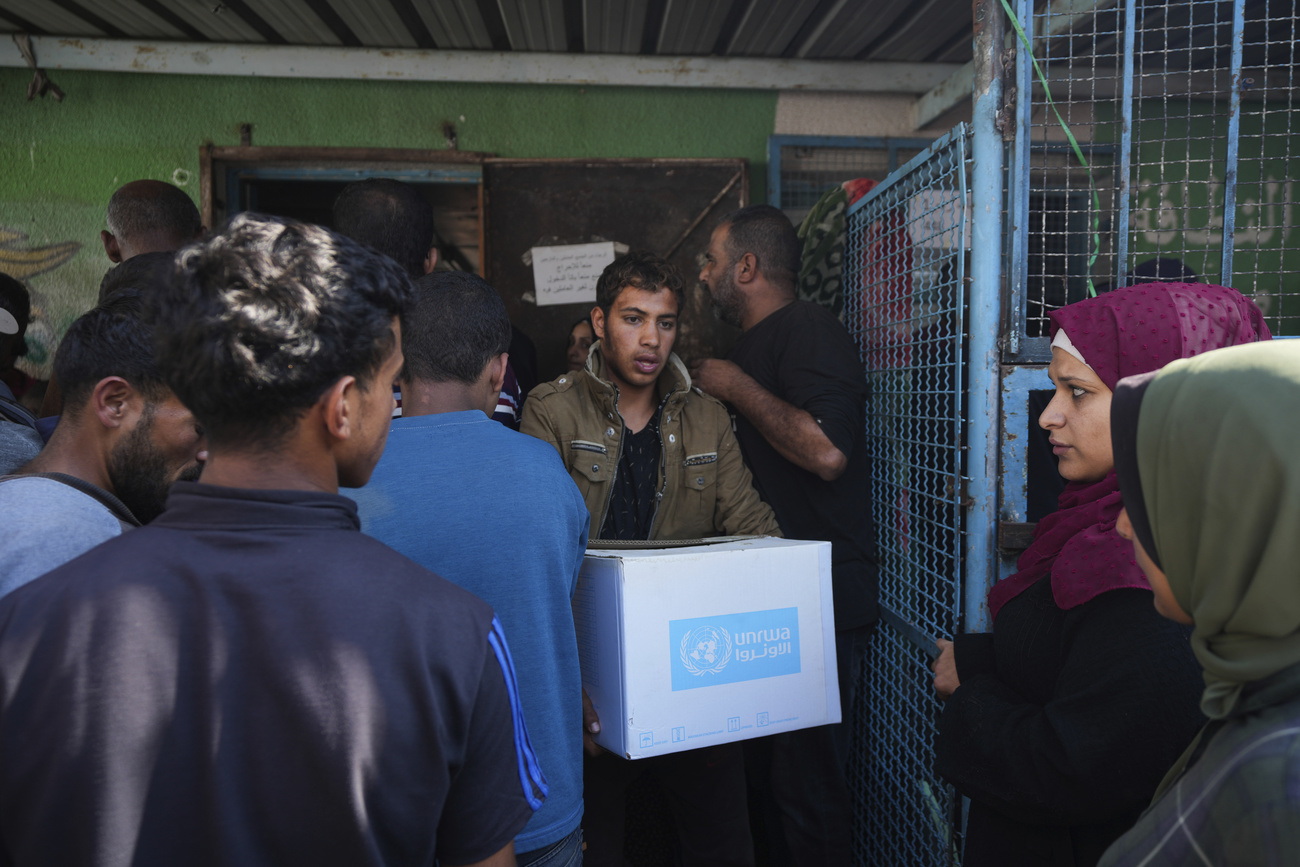
The Israeli parliament’s historic decision will prevent the UN agency for Palestinian refugees from delivering aid in Gaza, the West Bank and East Jerusalem. It has been met with strong reactions and is raising many questions. Here are some answers.
On Monday October 28, a large majority of the Israeli parliament (Knesset) – 92 votes in favour, 10 against – approved two laws banning the United Nations Relief and Works Agency for Palestine Refugees in the Near East (UNRWA) from operating in Israel and prohibiting Israeli officials from communicating with the organisation, effectively blocking its work in Gaza, the West Bank, and East Jerusalem. This legislation is due to come into force within three months.
Much of the international community, including Switzerland, humanitarian organisations, and the United Nations (UN) have denounced the decision, pointing to the agency’s key role in delivering aid to Palestinian refugees, particularly in the war-torn Gaza Strip.
Why has Israel banned UNRWA?
Historically opposed to UNRWA, Israel argues that the humanitarian organisation, which was created in 1949 and continues to support the descendants of Palestinians displaced by the 1948 war, perpetuates the Israeli-Palestinian conflict by allowing refugee status to be passed from one generation to the next.
Since the beginning of the year, the Israeli government has accused UNRWA of being infiltrated by the Palestinian militant group Hamas, accusing several of the agency’s employees of taking part in the Hamas attacks on Israel on October 7, 2023. These allegations were mentioned by the lawmakers who drafted the legislation.
An internal investigationExternal link by the UN has led to the dismissal of nine staff members because of their possible involvement in these attacks. Another external investigation found no major flaws in the organisation’s neutrality.
+ Listen to our Inside Geneva podcast on the allegations against UNRWA:
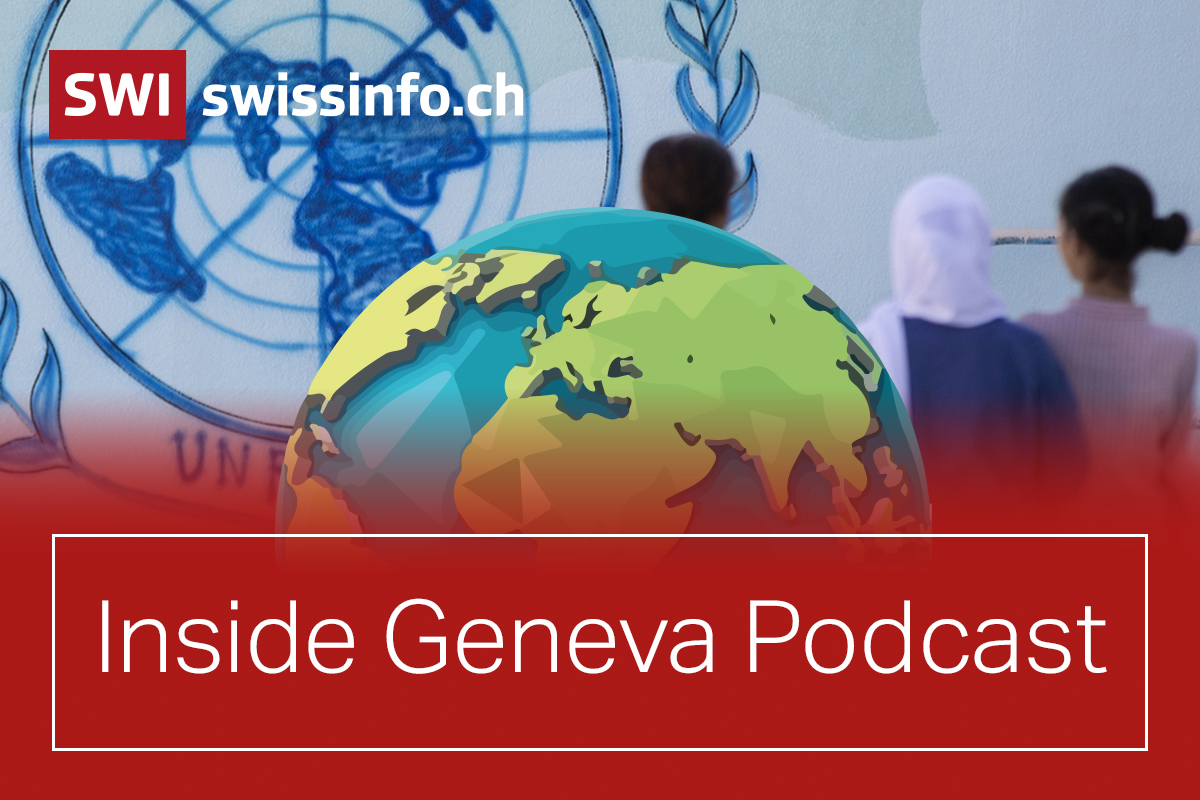
More
Inside Geneva: what’s the future of UNRWA?
What are the consequences for UNRWA and humanitarian aid?
UN Secretary-General António Guterres wrote on the social media platform XExternal link that “if implemented, the laws […] would likely prevent UNRWA from continuing its essential work in the Occupied Palestinian Territory”. This view was shared by UNRWA Commissioner-General Philippe Lazzarini of Switzerland, who wroteExternal link that “these bills will only deepen the suffering of Palestinians, especially in Gaza where people have been going through more than a year of sheer hell”.
The ban on operating on Israeli territory directly threatens UNRWA’s headquarters in East Jerusalem, a part of the city occupied by Israel since its annexation in 1967, as well as its activities in the Shuafat refugee camp.
For its part, the ban on communications with the agency jeopardises its operations in the West Bank and Gaza, where UNRWA has to collaborate with the Israeli authorities and army to transport and distribute aid, including for the safety of its staff. Under the new legislation, Israel will no longer provide UNRWA employees with the work permits or visas they need.
Speaking to Swiss public television, RTSExternal link, UNRWA spokesman Jonathan Fowler said he was “worried” about the future, even though it remains difficult to predict the specific consequences of this legislation.
“But it is true that if this law is implemented, it could interrupt our operations in the West Bank, East Jerusalem and Gaza, where we are the backbone of international humanitarian aid,” he added.
In the Gaza Strip, where 9 out of 10 PalestiniansExternal link have been displaced by more than a year of devastating war, UNRWA remains the main provider of humanitarian aid, on which other organisations rely. The agency employs around 13,000 people. It also runs many schools and health centres in the West Bank, Jordan, Lebanon and Syria.
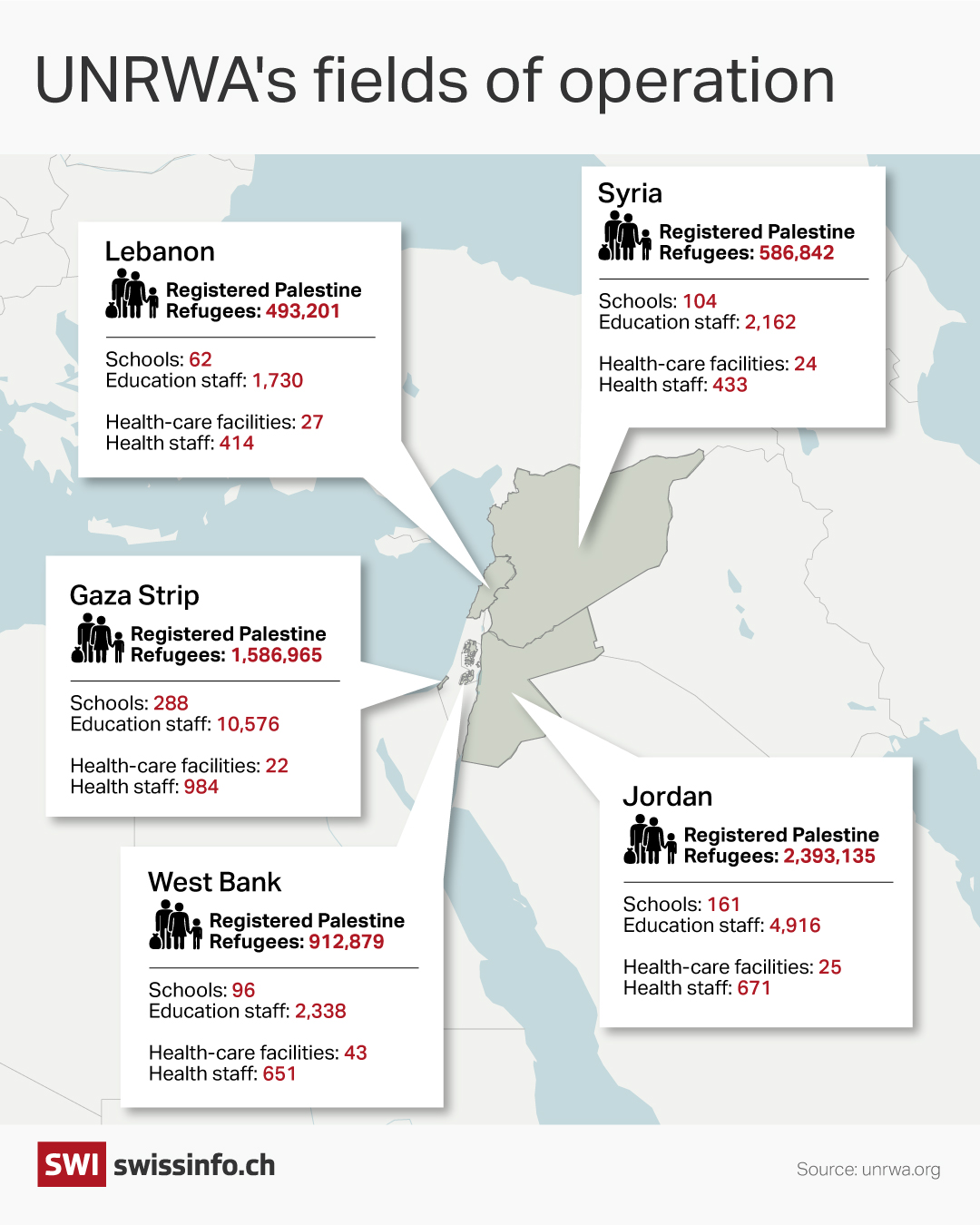
Can UNRWA be replaced?
Israel’s prime minister, Benyamin Netanyahu, saidExternal link on October 28 that he was “ready to work with [his] international partners to ensure that Israel continues to facilitate humanitarian aid to civilians in Gaza in a way that does not threaten Israel’s security,” meaning through other organisations.
Guterres and Lazzarini insist that the agency is “irreplaceable”. This message has been echoed by the other humanitarian actors regularly mentioned as possible replacements, including the International Organization for Migration (IOM)External link. In April, the director of the International Committee of the Red Cross (ICRC), Pierre Krähenbühl, also told Le TempsExternal link newspaper that the Geneva-based organisation “would not take over UNRWA’s mandate”.
In an interview with RTSExternal link, Jean-Daniel Ruch, former Swiss ambassador to Israel (2016-2021), said it was “not realistic in the short term” to replace UNRWA with another organisation, whether private or part of the UN. “That seems to me to be extremely difficult. Because to provide this humanitarian assistance, you need networks of suppliers to buy materials, networks for delivery to the Gaza border, lorries and a distribution network inside Gaza itself by people who know the terrain.”
What does international law say?
The heads of the UN and UNRWA, as well as a number of states, have said that the legislation violates international law.
Fuad Zarbiyev, professor of international law at the Geneva Graduate Institute, says that this is “yet another scandalous violation” by Israel of the UN Charter and international law.
When countries become members of the UN, they commit to providing the organisation with the necessary conditions on their territory for it to carry out its activities. These conditions are defined in the UN Charter and in the Convention on the Privileges and Immunities of the UN, two treaties by which Israel is bound. “The Israeli parliament’s decision is a serious and unjustifiable violation of these agreements,” he adds.
UNRWA operates under a mandate from the UN General Assembly, a forum in which all member states have a seat. According to Zarbiyev, Israel cannot therefore unilaterally prohibit the agency’s activities in its territory or ban the necessary contacts between its authorities and the organisation.
“The UN should not depend on the goodwill of the Israeli authorities. We are talking about commitments made under international law. Unless Israel leaves the United Nations, it will be difficult for it to claim that this decision is grounded in law,” he adds.
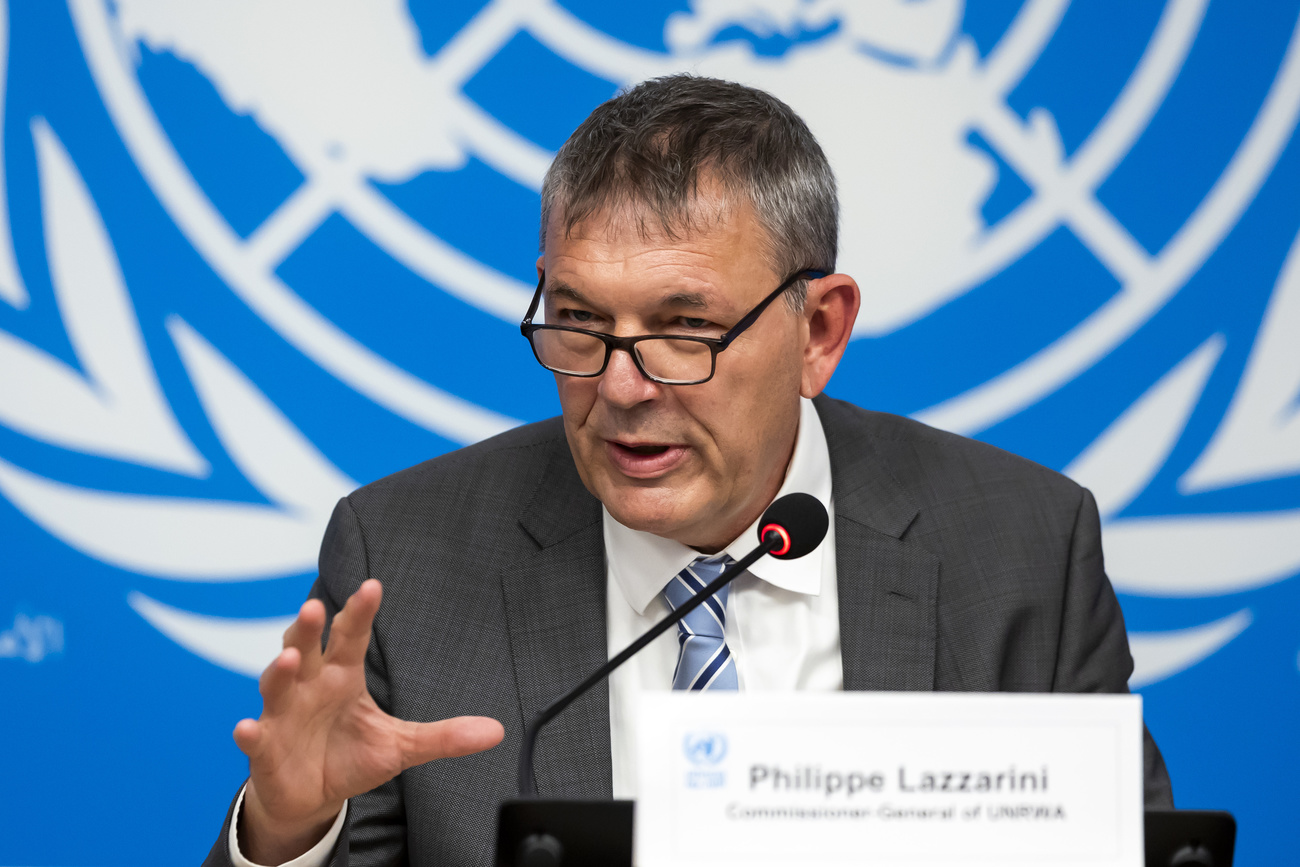
What can the UN and the international community do?
On October 29, Guterres sent a letterExternal link to the president of the UN General Assembly in which he mentions that “a situation may exist in which a difference has arisen between the UN and Israel regarding, among other things, the interpretation or application of the Convention on the Privileges and Immunities of the UN”.
According to Zarbiyev, if one reads between the lines, this means that Guterres is encouraging UN members to ask the International Court of Justice (ICJ), the UN’s top judicial body, to produce an “advisory opinion” on the possible dispute between Israel and the UN over this matter.
“Under the terms of the Convention, this advisory opinion must be recognised as binding by the parties,” explains Zarbiyev. If the International Court of Justice (ICJ) finds that Israel is in breach of the law, “this will further undermine its legitimacy”. He adds: “It is one thing for the General Assembly or the Secretary General to declare that this is a violation of international law. But it’s quite another if that opinion comes from the UN’s principal judicial organ.”
If the ICJ rules that international law does not allow Israel to ban UNRWA, then the Security Council or the General Assembly could act on this basis. Their action could range from a firm resolution condemning Israel to a decision to withdraw certain rights from it, or even to impose sanctions or expel it from the UN, although this is not a realistic option. International pressure could have an impact on the way Israel implements these laws.
What does this mean for the UN?
Lazzarini believes that the Israeli parliament’s decision sets a “dangerous precedent” and threatens to “weaken our common multilateral mechanism”.
But according to Richard Gowan, UN director at Crisis Group, a think-tank in New York, this is not exactly the case. “The idea that this is unprecedented and creates a dangerous precedent for the UN is overstated,” he says.
This is not the first time that a state has opposed UN activities on its territory. The Malian government, which came to power in a coup in 2021, criticised the UN peacekeeping mission in Mali and imposed operational restrictions, before securing its withdrawal at the UN Security Council.
“But it is true that it is unusual for a country to de facto ban the operations of a specific UN agency in this way,” adds Gowan.
If Israel ignores the decisions of UN bodies, “then that sends a very strong signal that the UN can be pushed out at will,” he adds. “And if Israel does it, then others will think they can do it too.”
Edited by Imogen Foulkes/livm/sb

More
Newsletters

In compliance with the JTI standards
More: SWI swissinfo.ch certified by the Journalism Trust Initiative









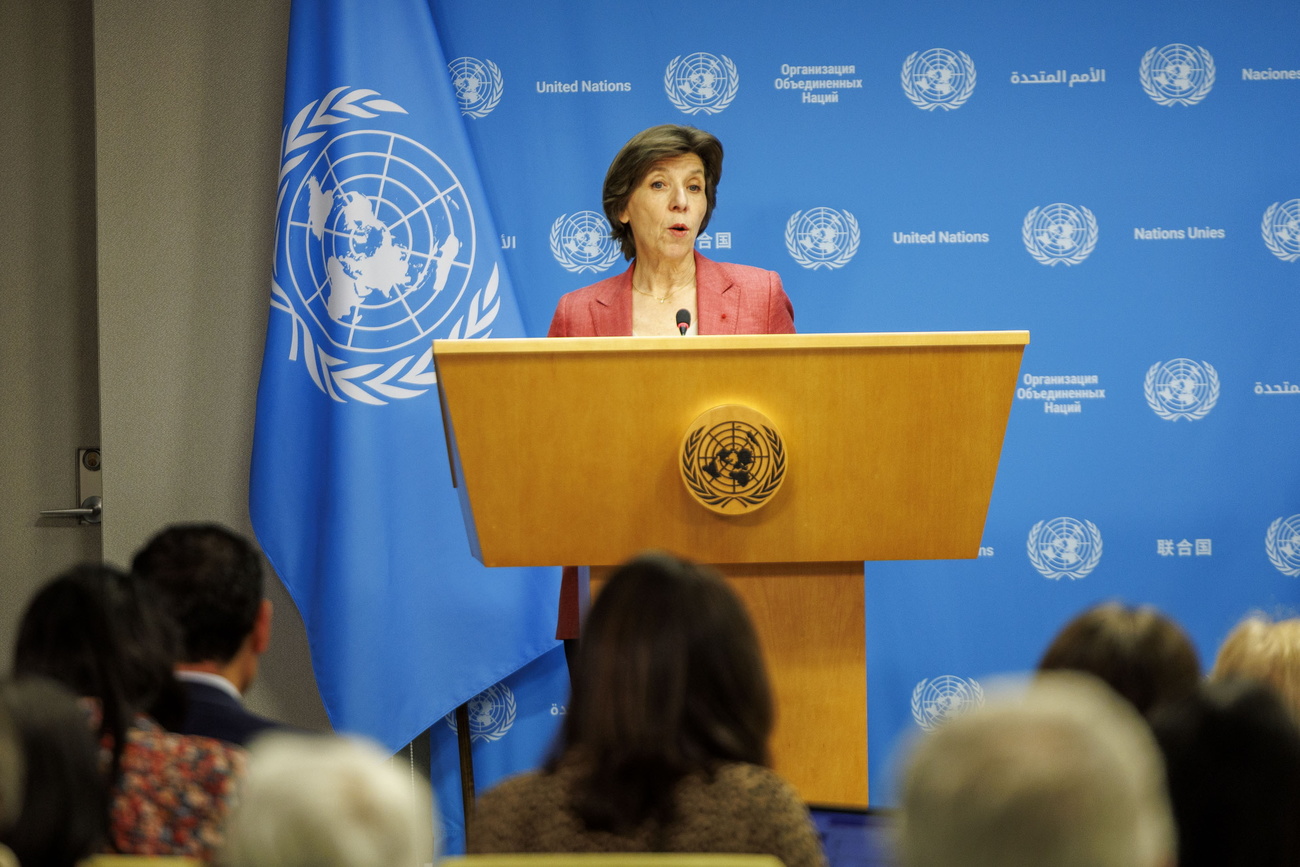
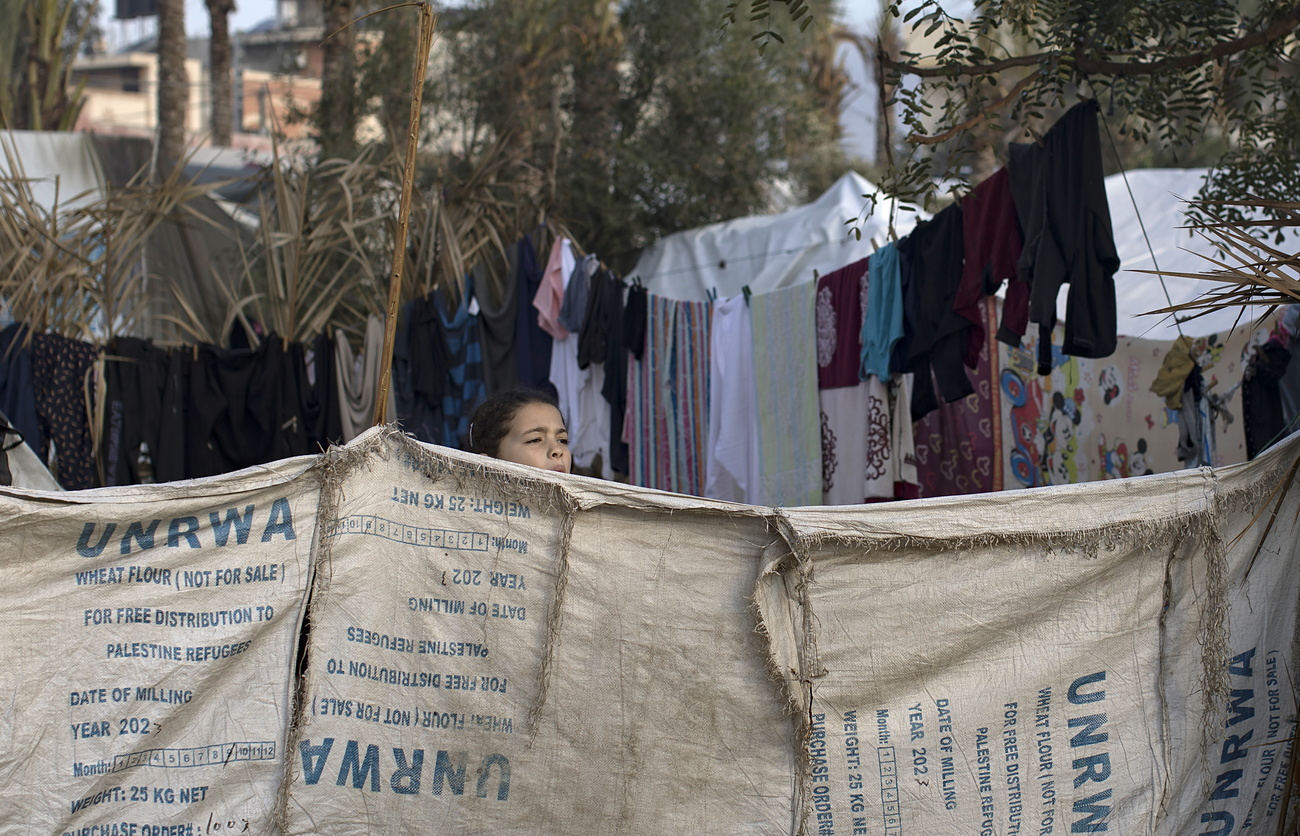
You can find an overview of ongoing debates with our journalists here . Please join us!
If you want to start a conversation about a topic raised in this article or want to report factual errors, email us at english@swissinfo.ch.